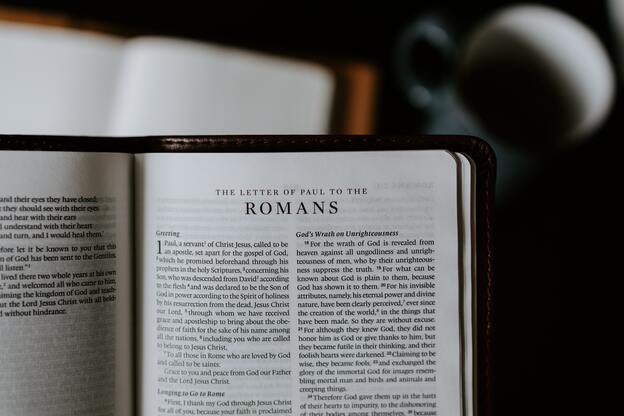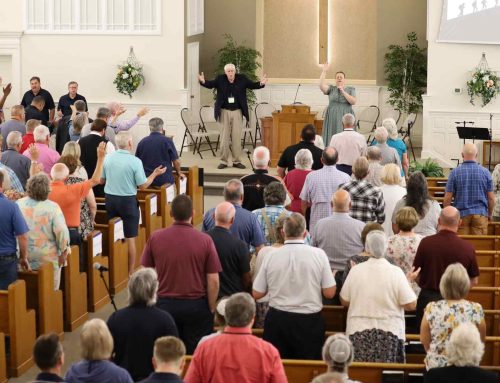Romans 12:10 says, “Love one another with brotherly affection. Outdo one another in showing honor.”
 We do this out of love. Paul reminds us that we are to love one another, and then spells out with nine specific instructions in Romans 12:9-10. We honor fellow believers because:
We do this out of love. Paul reminds us that we are to love one another, and then spells out with nine specific instructions in Romans 12:9-10. We honor fellow believers because:
- fellow believers are created in God’s image. If we love God, if we honor God, then we honor that which He has made.
- they are brethren and sisters in Christ. 1 John 3:14 says, “We know that we have passed from death unto life, because we love the brethren.”
- we are glad that they are building up the Body of Christ.
John Wesley was asked if he would see his onetime co-worker George Whitefield in Heaven. Wesley and Whitefield had parted ways over predestination and election. Wesley said, “No, I will not see him.” His questioner was shocked and said, “You mean you don’t think that Whitefield is with the Lord?”
“No,” replied Wesley, “He will be so close to the Lord that the glory will prevent me from seeing him.” Wesley was glad for the ways in which Whitefield had built up the body of Christ, even though they had sharp differences.
We do it actively. While this exhortation is to humility, it reminds us to be active in honoring one another. It tells us to outdo one another in preferring each other in the church. It implies an awareness and activity in promoting another person.
Be alert to what others are contributing, and honor them. Do others get more recognition? Rejoice when this happens! “God’s call to the church is to prefer one another to succeed,” wrote Simon Schrock. The Christian “is content to be outshone by others in gifts and esteem, so that the crown of Christ may shine the brighter.” (Thomas Watson).
It really works! When we prefer one another:
- we really listen to one another, rather than think about what we’re going to say next.
- we avoid one-upsmanship, where we hear something and then immediately say how much better we or our family did it.
- we have confidence in another’s gifts/abilities/gifts/talents to do a job, even though we might be better qualified.
- we offer help before being asked. We do this to be truly helpful, to share of ourselves so that the other person might succeed.
- we do not care who gets the credit. “There is no limit to how much can be accomplished as long as you don’t care who receives the credit.”
- we offer the best to others; we take what is left. Abraham and Lot are the perfect examples of this in Genesis 13:9. Abraham realized that God would care and provide for his needs.
- we don’t care if we were thanked for our efforts or if our names were in the bulletin.
Warren Wiersbe prayed, “O God, help me to get my work done, and it makes no difference who gets the honor, as long as You get the glory.”
Amen.
Craig Alan Myers – CBC Executive Board member





